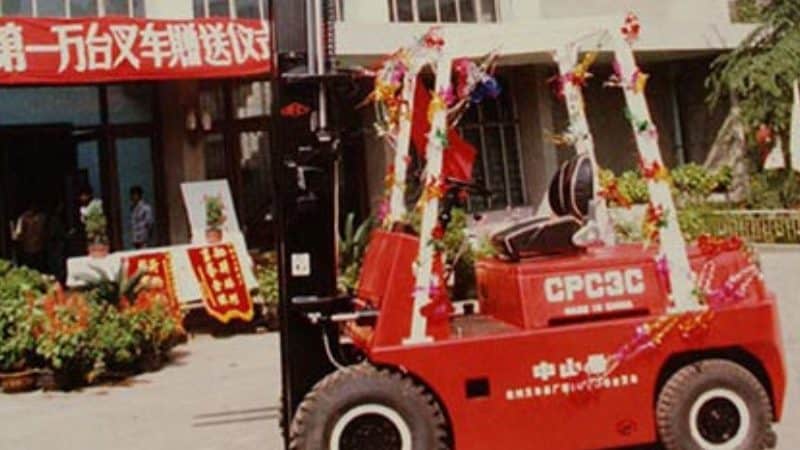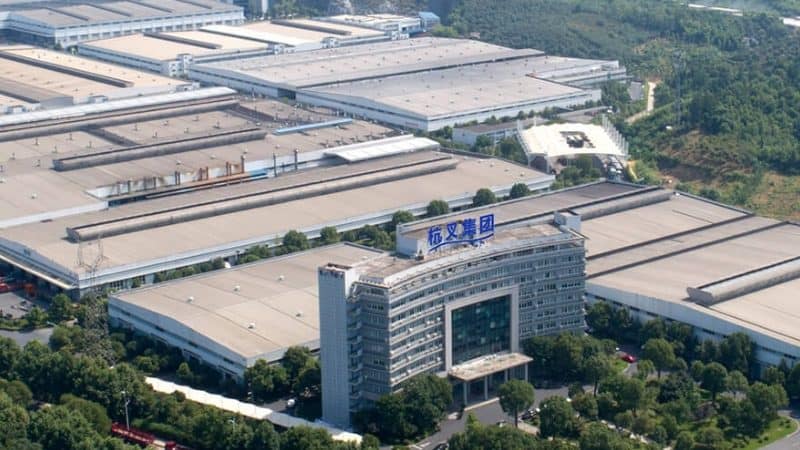From Humble Beginnings to Global Innovation
Introduction
HC Hangcha, known officially as Hangcha Group Co., Ltd., is one of the world’s leading manufacturers of industrial vehicles, particularly forklifts. With a legacy spanning several decades, Hangcha has grown from a modest state-owned workshop into a pioneering force in the global material handling equipment industry. This history explores the roots, growth, innovations, and international expansion that have defined Hangcha’s journey.
Founding and Early Development
Hangcha’s origins trace back to 1956, in the city of Hangzhou, Zhejiang Province, China. The company began as Hangzhou Mechanical Repair Factory, a small state-run enterprise focused on repairing agricultural machinery and basic mechanical components. In its formative years, the enterprise played a vital role in supporting China’s post-war industrial recovery, contributing to the repair and maintenance of farm equipment and simple transportation vehicles.
As the economic reforms of the late 1970s and early 1980s swept through China, the company began to pivot toward manufacturing, recognizing the growing domestic need for material handling solutions. By 1974, the business had adopted the name Hangzhou Lifting Equipment Factory, marking the start of its journey into the lifting equipment sector. Early on, Hangcha’s focus was on developing simple hoists and lifting devices to support warehouses, transportation hubs, and factories.

The Birth of the Hangcha Forklift
Hangcha’s forklift production began in earnest in 1978, when it rolled out its first domestically produced forklift truck. This milestone marked a turning point for the enterprise, setting it on a course to become a specialist in the research, development, and manufacture of forklifts within China. At that time, China’s industrial sector was rapidly expanding, and efficient logistics and material handling became essential for economic growth.
During the late 1970s and early 1980s, Hangcha invested heavily in mechanical design, manufacturing technology, and workforce training. These investments enabled the company to expand its product range from basic forklifts to more sophisticated and capable models, gradually building a reputation for reliability and affordability.
Brand Development and Technological Innovation
The 1990s represented a period of dramatic change for Hangcha. In 1991, the company officially adopted the “Hangcha” brand name, which is derived from “Hangzhou” (the company’s home city) and “Cha” (meaning “forklift truck” in Chinese). The establishment of the Hangcha brand marked the company’s commitment to innovation, quality, and national pride.
Hangcha’s product line diversified throughout the 1990s, moving beyond traditional internal combustion forklifts to include electric-powered models and specialized warehouse equipment. In response to mounting environmental concerns and stricter emissions standards, Hangcha invested in the research and development of electric forklifts, launching its first electric models in the mid-1990s. These advances positioned the company as a leader in environmentally conscious material handling solutions in China.
At the same time, Hangcha began to invest in automation and digital technologies. The company introduced advanced manufacturing techniques, including robotics and precision assembly lines, to improve efficiency and product quality. These technological upgrades set the stage for Hangcha’s future as a world-class manufacturer.
Restructuring and International Expansion
The late 1990s and early 2000s saw Hangcha undergo major restructuring to enable greater competitiveness and growth. In 2000, Hangcha was restructured into a joint-stock company, Hangcha Group Co., Ltd., opening the door to more agile business practices and increased innovation. This transformation allowed the company to pursue international markets more actively, participating in global trade fairs and establishing partnerships with overseas distributors.
Hangcha’s strategy for international expansion included the development of products that met international safety and quality standards, allowing the company to export to Europe, North America, and beyond. The company established offices and facilities overseas, including subsidiaries and technical support centers, to better serve its growing global customer base.
Product Portfolio and Technological Milestones
Hangcha’s portfolio has grown to encompass a wide array of forklifts and material handling equipment. The company produces internal combustion forklifts, electric forklifts, reach trucks, pallet trucks, stackers, rough terrain lifts, and a variety of specialised models for unique industrial and warehouse applications.
A significant milestone in Hangcha’s history was the release of its “A Series” forklifts in the 2010s, which showcased advanced ergonomics, improved safety features, and higher energy efficiency. Hangcha also pioneered the development of lithium-ion battery forklifts, anticipating the shift toward greener, sustainable energy sources. These models offer rapid charging times, high energy densities, and reduced maintenance requirements, positioning Hangcha as a leader in electric and new energy forklifts.
The company’s commitment to innovation is exemplified by its investment in intelligent manufacturing. Hangcha’s factories utilize Industry 4.0 principles, integrating smart robotics, data analytics, and real-time quality control into their production lines. This approach ensures high-quality products and efficient operations, maintaining Hangcha’s reputation for reliability on the global stage.
Global Presence and Market Leadership
Today, Hangcha Group is recognized as one of the top forklift manufacturers in the world. The company’s products are sold in more than 180 countries and regions, and Hangcha consistently ranks among the top global suppliers in terms of units produced and exported. Its international network includes wholly owned subsidiaries in the United States, Europe, Thailand, and Brazil, among other locations, providing local service and support for distributors and end-users.
Hangcha has received numerous awards and recognitions for its contribution to industry innovation, product design, and quality. The company’s focus on sustainable development has also earned it certifications and accolades in green manufacturing and environmental stewardship.
Corporate Philosophy and Social Responsibility
Hangcha’s corporate philosophy centres on continuous improvement, customer satisfaction, and sustainable growth. The company invests heavily in research and development, with dedicated R&D centres that collaborate with universities and technical institutes. This commitment to innovation ensures that Hangcha remains at the forefront of material handling technology.
In addition to innovation, Hangcha is dedicated to corporate social responsibility. The company supports local communities in Zhejiang Province, promotes employee welfare, and contributes to educational and environmental initiatives. Hangcha also participates in global efforts to reduce carbon emissions and energy consumption within the material handling industry.
Recent Developments and the Future
In recent years, HC Hangcha has continued to expand its product lines and global reach. The company has launched automated guided vehicles (AGVs) and smart warehouse solutions, embracing the trends of automation and digitalisation in logistics and supply chain management. Hangcha’s ongoing efforts in battery technology and renewable energy integration reflect its commitment to a sustainable future.
Looking ahead, Hangcha aims to solidify its role as a leading supplier of intelligent, green, and efficient material handling solutions worldwide. As e-commerce, urbanisation, and industry automation accelerate, Hangcha’s blend of innovation, quality, and global perspective ensures it remains a driving force in the forklift industry.
Conclusion
From its humble origins as a repair workshop in 1956 to its current status as a global innovator, HC Hangcha’s journey reflects the broader story of China’s industrial transformation and integration into the world economy. With a steadfast commitment to quality, technological advancement, and customer service, Hangcha continues to shape the future of material handling—one lift at a time.

